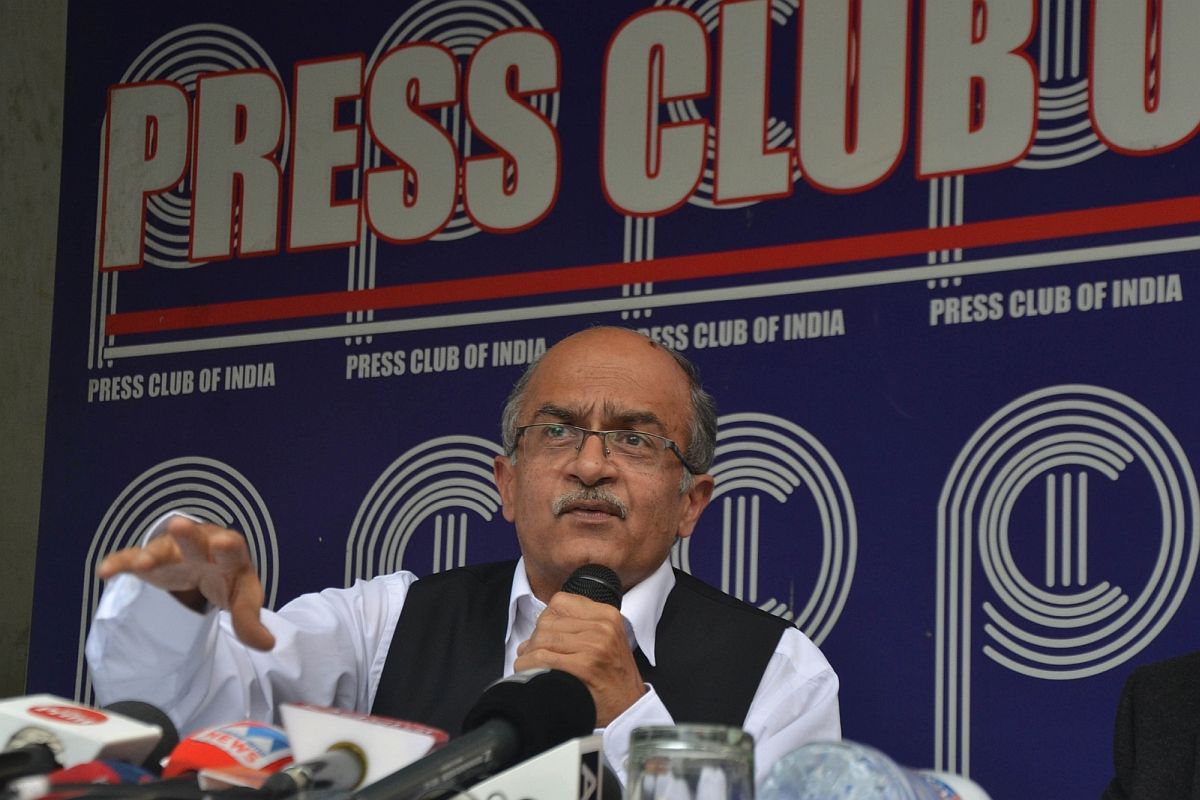The Supreme Court will today pronounce the order on the quantum of sentence in the contempt case against activist-lawyer Prashant Bhushan, who has been held guilty for his tweets against CJI SA Bobde and his four predecessors.
On August 25, a bench comprising Justices Arun Mishra, BR Gavai and Krishna Murari had reserved its order on the quantum sentence, after Bhushan declined to apologize for the tweets.
Advertisement
The contempt case is in connection with Bhushan’s comments on the judiciary during an interview to the Tehelka magazine in 2009.
The top court has convicted Bhushan for making derogatory statements against the judiciary in two tweets. Prashant Bhushan has refused to apologise and said it is his bona fide belief.
Pointing at Bhushan’s response, the court told Attorney General KK Venugopal — who urged the Supreme Court to forgive the lawyer saying that it was not necessary to punish him — that Bhushan’s “court has collapsed” comment was objectionable, but his response to the court was even more derogatory.
As AG KK Venugopal insisted that the top court should show statesmanship and not use the powers of contempt, the bench asked the AG, “What is the use of warning to Bhushan who thinks he has not done anything wrong?”
The Supreme Court also took a 30-minute break from the hearing to allow Prashant Bhushan to think on withdrawing a 100-page statement he submitted on August 24, in which he not only refused to apologise but also said: “The hopes of the people of India vest in this Court to ensure the rule of law and the Constitution and not an untrammeled rule of the executive.”
Reacting to the statement, the Supreme Court said it had expected a different statement. “It was painful to read his reply in justification of his tweets. It was absolutely improper. This is not the way a senior lawyer like Prashant Bhushan with over 30 years of experience should behave. And it is not just him, this has become very common now,” said the court.
The bench, referring to Bhushan’s refusal to apologise for his tweets, further asked, “What is wrong in apologising? Is this word so bad?”
On August 20, the Supreme Court gave Prashant Bhushan time till August 24 to submit an “unconditional apology” and asked him to reconsider his defiant statement declining to apologise for his derogatory tweets against the judiciary.
It had, however, rejected Bhushan’s request to defer hearing on his sentencing in 2009 contempt case in which he was held guilty.
Advocate Prashant Bhushan in his written submissions to the Supreme Court had said there should not be any attempt to coerce him into making an apology and asked the court to recall its August 14 judgement holding him guilty of contempt of court as similar statements were made by retired judges and others.
In its previous hearing, the top court agreed to refer to an “appropriate bench” the question of conflict between right to free speech and suo motu contempt powers of court in the case against the activist lawyer. The three-judge Bench of the Supreme Court headed by Justice Arun Mishra deferred the case to September 10.
It observed that it is not only a question of punishment but also faith in the institution that required detailed hearing.
The bench told senior advocate Rajeev Dhavan, representing Bhushan, that he must ponder that people come to court for relief, and when that faith is shaken then there is a problem.
Dhavan contended that the top court could say in the judgment about the kind of code people should follow, but the idea should not be to silence Bhushan.
The top court asked Bhushan during the arguments why is he so averse to apologize for the tweets. Dhavan reiterated that the bench should not make him a martyr, as he has not committed murder or theft.
The apex court had initiated suo motu contempt proceedings against Bhushan for publishing two tweets, the first tweet, which was posted on June 27 alleged that the last four Chief Justices had played a role in the “destruction of democracy” during undeclared “emergency” for last six years.
And the second tweet on June 29 allegedly said the present Chief Justice rode a stationary bike at Nagpur while keeping the apex court in lockdown and denying citizens their right to access to justice.











